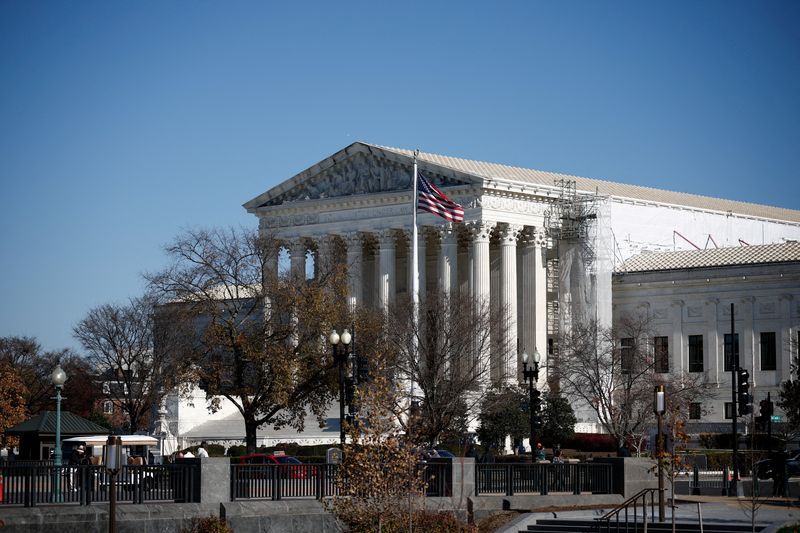By Andrew Chung
(Reuters) - The U.S. Supreme Court declined on Tuesday to hear a bid by civil and voting rights groups to end Pennsylvania's mandate that mail-in ballots bear a handwritten date on the outer envelope, a requirement they contend is unnecessary and has resulted in needless disqualification of legitimate ballots.
The justices turned away an appeal by the plaintiffs of a lower court's ruling that upheld the requirement and rejected the argument that it violated a provision in federal law that bars discarding ballots due to paperwork errors that are "not material" in determining whether a person is qualified to vote.
The Philadelphia-based 3rd U.S. Circuit Court of Appeals in 2024 decided that the date requirement "serves little apparent purpose" as it is not used by officials to determine whether it was received on time. Nevertheless, it remains valid because the 1964 Civil Rights Act applies only to voter registration rules when a state is determining who is qualified to vote, not "how a qualified voter must cast his ballot for it to be counted," the 3rd Circuit ruled.
Pennsylvania often is pivotal in determining the outcome of presidential elections, as it again was last year. Republican President Donald Trump won the state over his Democratic rival Kamala Harris in November after losing it to Democrat Joe Biden four years earlier.
The requirement at issue affects voters in Pennsylvania who cast ballots by mail. It mandates that they place their secret ballot into an outer return envelope, on which they must sign and date a declaration that they are qualified to vote.
Plaintiffs including the Pennsylvania State Conference of the NAACP, represented by the American Civil Liberties Union, sued state and county election officials in 2022 under what is called the Civil Rights Act's materiality provision.
That language prohibits denying an person's vote "because of an error or omission on any record or paper relating to any application, registration or other act requisite to voting, if such error or omission is not material in determining whether such individual is qualified under state law to vote."
A federal judge sided with the plaintiffs, noting that the date requirement is irrelevant to determining voter qualifications or ballot timeliness. But the 3rd Circuit overturned that decision, prompting an appeal to the Supreme Court.

The plaintiffs in a filing told the Supreme Court that the "total lack of relevance" of having a date on the outer ballot envelope is undisputed and yet, as mail-in ballot voting is increasingly used, Pennsylvania's rule is resulting in "the needless disenfranchisement of thousands of voters each election, especially seniors of all political stripes."
Attorneys from the Republican National Committee and state Republican Party, who intervened in the case to defend the envelope date requirement, urged the justices to reject the appeal. The plaintiffs are targeting voting rules "designed to prevent fraud and safeguard the integrity of elections," they wrote in a filing.